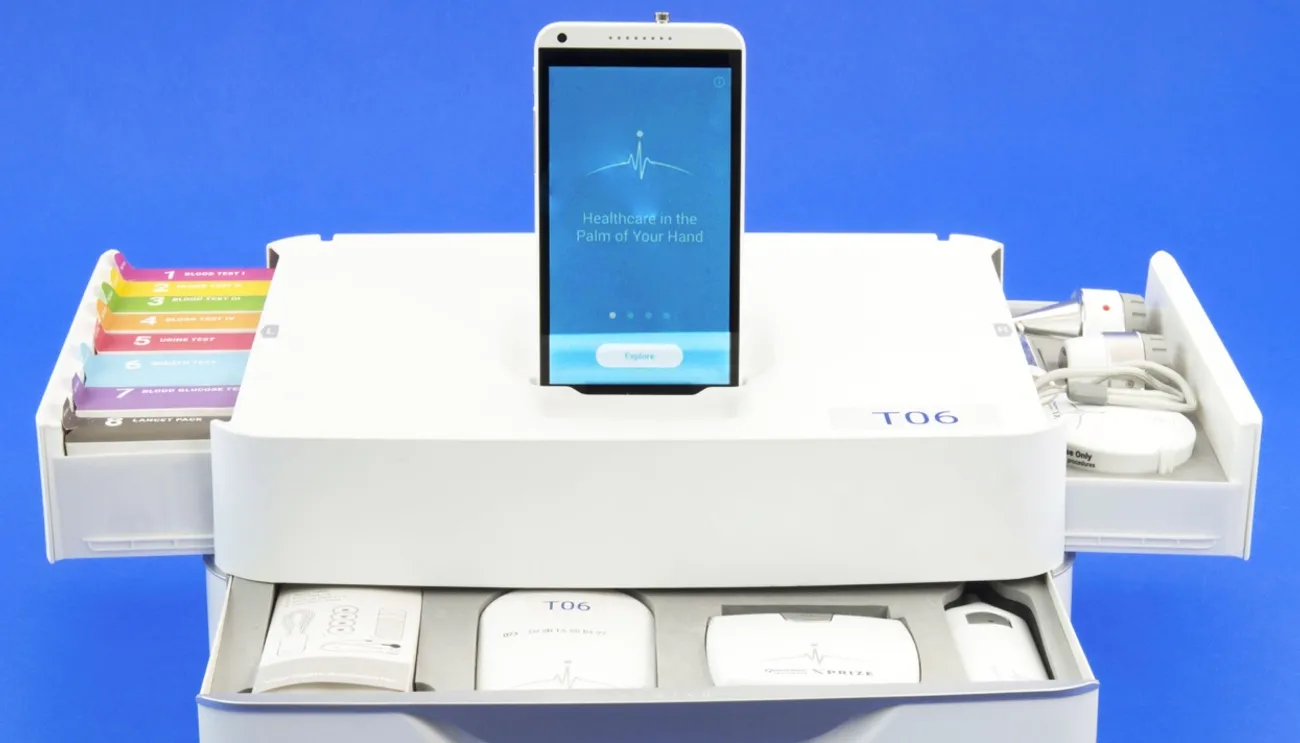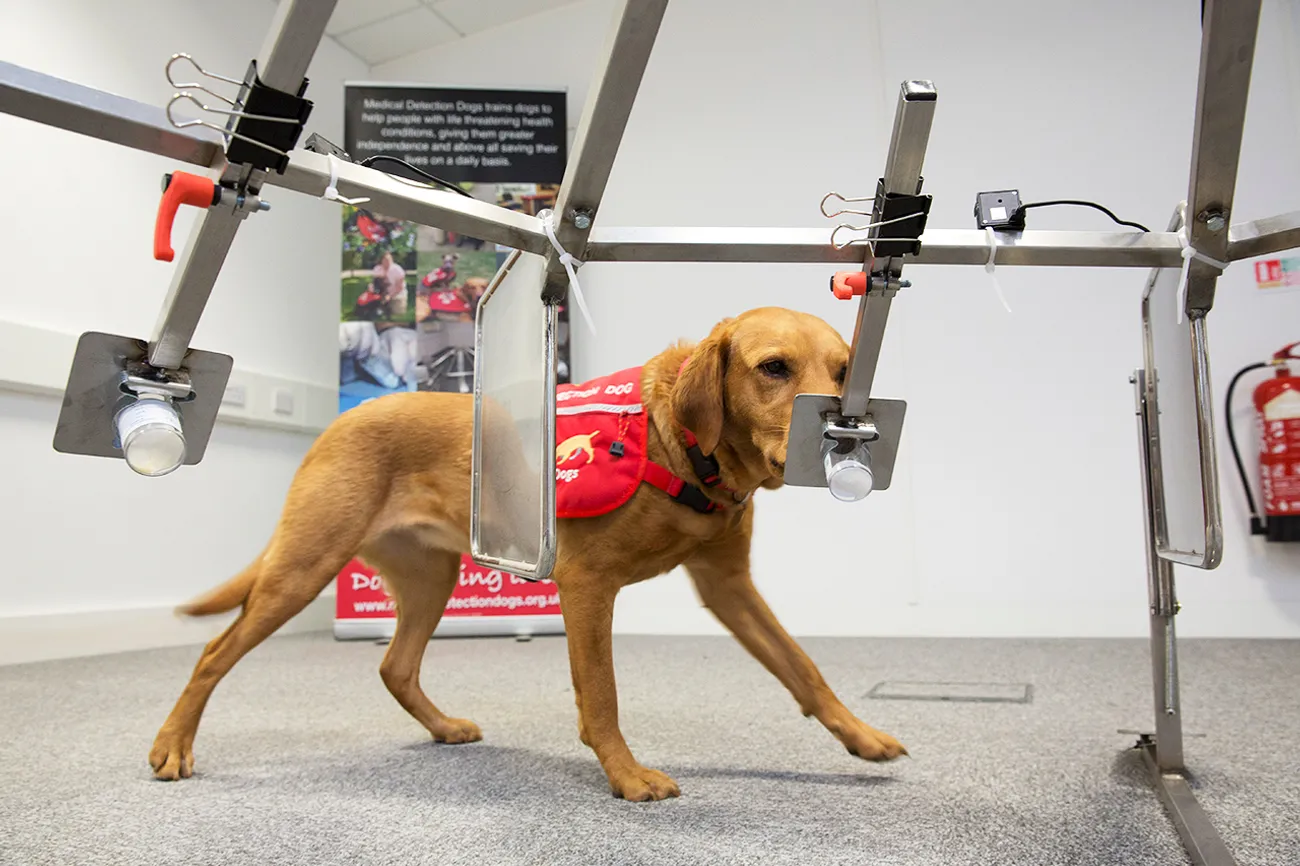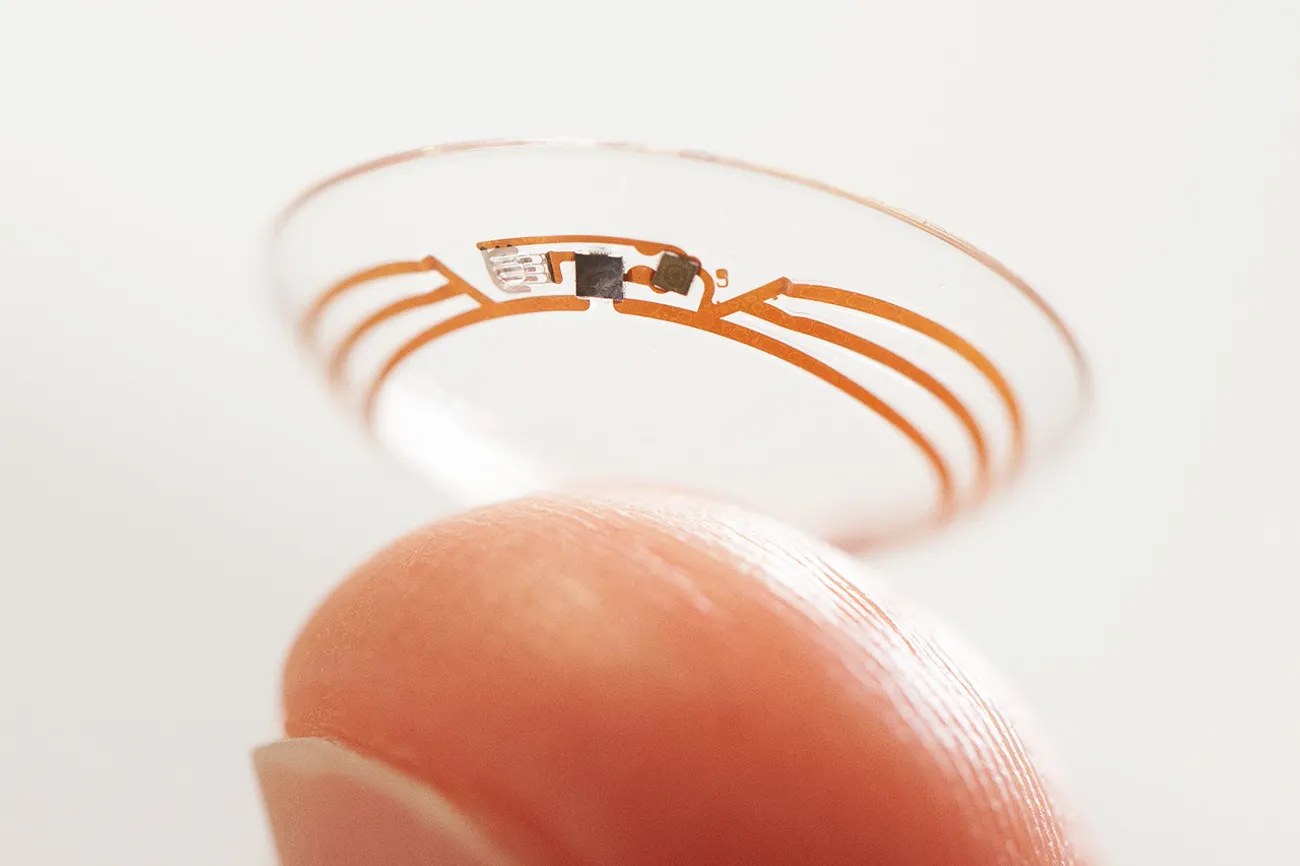Contents
- When is it worth doing a home diagnostic test?
- What diagnostic concepts should you know before conducting a home test?
- Home diagnostic tests – what can I do?
- Home tests for women
- Home tests for intimate infections
- Home tests for men
- Home tests for fecal occult blood
- Home tests for the level of vitamins and hormones
- Home tests for urinary tract infections
- Home tests for the detection of Helicobacter pylori bacteria
- Home tests for COVID-19
- Home drug tests
- Home diagnostics: the most promising gadgets for disease detection
Modern diagnostic techniques allow you to carry out tests at home. It is a convenient solution that allows you to avoid the stress associated with performing tests in the laboratory. When is it worth doing a home diagnostic test? We check what tests can be done in the comfort of your own bathroom.
- Home diagnostic tests are simple to perform and the result is quickly obtained
- The material for home diagnostic tests is usually urine, saliva, faeces or a blood sample
- Among home diagnostic tests, there are tests for women, men, for fecal occult blood or for urinary tract infections.
- You can find more such stories on the TvoiLokony home page
When is it worth doing a home diagnostic test?
Home diagnostic tests are primarily characterized by the simplicity of the test performed. The most common material to be collected is saliva, faeces, a drop of blood, urine or vaginal discharge. Obtaining an immediate result is another advantage of home use.
In addition, the test can be performed at home at any time convenient for us. It is different in the case of the laboratory, where we have to make an appointment for a specific time. In addition, home diagnostic tests are much cheaper than a standard laboratory test. However, remember to perform them in sterile conditions, carefully reading the leaflet and following the manufacturer’s instructions.
In the event of an abnormal or unclear result, repeat the test or consult your doctor.
What diagnostic concepts should you know before conducting a home test?
Before starting a home diagnostic test, it is helpful to understand the terms that will help you interpret the result. These include analytical sensitivity, diagnostic sensitivity and diagnostic specificity.
Analytical sensitivity is the amount of material tested. The smaller the amount, the more sensitive the test is.
In turn, diagnostic sensitivity (expressed as a percentage) is a measure of the test’s ability to recognize a disease entity. Specificity of diagnostics allows to determine whether the test is capable of excluding a disease entity.
Home diagnostic tests – what can I do?
Modern medicine allows you to carry out various home diagnostic tests for both men and women, and children. Among the most popular are pregnancy tests, fecal occult blood tests or tests for intimate infections.
Home tests for women
Home tests for women is a broad category that includes not only pregnancy tests, but also tests for mothers-to-be. The most common are packages containing three cassette tests: ultrasensitive ovulation stream test, panel test for intimate infections and hCG plate pregnancy test. Controlling the menstrual cycle, as well as excluding intimate infections, is very important for women who are planning a pregnancy.
The home ovulation test can also be purchased separately. We offer the LH test to buy from Medonet Market. There are as many as five tests within one package.
A home diagnostic test will also work if we experience unpleasant symptoms related to the malfunctioning of the endocrine system. In this case, we can decide to have a blood donation performed by a nurse at home.
The home test will also work for women who are having the first symptoms of menopause. The recommended plate test allows you to determine the concentration of FSH, the level of which begins to increase when the menopause begins.
Home tests for intimate infections
Home tests for intimate infections are based on changes in the pH value. The correct level is 3,8-4,4 pH – then it is acidic. The test is worth doing if you notice such disturbing symptoms as burning, itching or discharge with an unusual smell and appearance.
Home tests for men
Tests for men are another broad category. In this case, cassette tests for the qualitative determination of sperm concentration are the most popular. They are useful in the initial diagnosis of infertility.
Men over 50 should have their prostate checked regularly. In this case, we recommend a home PSA test to be purchased at medonetmarket.pl – it is a prostate antigen that appears in lesions of the prostate gland.
Home tests for fecal occult blood
Home fecal occult blood tests are used to prevent colon cancer. Among the symptoms that should be the first signal, not only for examination, but also for medical consultation, there are chronic pains in the stomach area, weight loss, diarrhea, and a feeling of heaviness after a meal. At Medonet Market you will find a home test for fecal occult blood.
Home tests for the level of vitamins and hormones
Home tests for the level of vitamins and hormones allow for quick diagnosis. It is worth doing them if you notice a drop in energy, a constant feeling of weariness or excessive sleepiness. On Medonet Market we can find:
- Cassette test for testing the level of vitamin D – especially recommended for people who notice excessive fatigue or weight fluctuations,
- A cassette test for measuring the level of ferritin – allowing to exclude or confirm anemia,
- Cassette test for testing TSH levels – for people who suspect thyroid problems,
- Blood test package for vegans and vegetarians – they allow you to check the level of individual vitamins and minerals.
Home tests for urinary tract infections
A home test for urinary tract infections can be done for both adults and children. This is a test strip that can be partially submerged under your urine stream or in your morning urine sample. The test is especially recommended for people who have noticed problems with urination, bladder pain, burning, and lumbar pain.
Home tests for the detection of Helicobacter pylori bacteria
Bacteria Helicobacter pylori belongs to class I carcinogens. It causes disturbances in the gastric mucosa, leading to ulcers. The material for the test cartridge can be blood or stool. For this reason, we propose:
- Home test for the detection of Helicobacter pylori antigen in the stool,
- Home blood test for anti-Helicobacter pylori antibodies.
We can also opt for a test kit for stomach ailments that, in addition to the test for Helicobacter pylori, contains a fecal occult blood test.
Home tests for COVID-19
A home test for COVID-19 is worth doing if you notice disturbing symptoms, such as fever, sore throat, muscle pain, weakness, chills or lack of smell. In this case, we recommend the Ag-SGTi-flex test available in Mednet Market, which also detects the Omikron variant.
Home drug tests
Home drug tests are performed by analyzing urine or saliva. It enables the detection of tetrahydrocannabinols, opiates, amphetamines and cocaine. Most often, a urine or saliva sample can be stored for up to 48 hours. We recommend three drug tests available on Medonet Market:
- Home urine drug test – 6 drugs – marijuana, amphetamines, heroin, hashish, cocaine, morphine.
- Home Drug Test – Cannabinoids and THC in Urine
- Saliva home drug test – 6 drugs – marijuana, amphetamines, heroin, hashish, cocaine, morphine.
Home diagnostics: the most promising gadgets for disease detection

On April 12, it became known that Apple is developing technology that will allow measuring blood sugar levels non-invasively, that is, without the use of a needle or any other device that penetrates the human body. On the same day, two companies received an award for creating devices that can diagnose at least 12 diseases without much intervention in the body. The organizers of the competition wanted to stimulate, in fact, the creation of a tricorder – a device from the Star Trek series for simple diagnosis of diseases. Meduza talks about the ways big tech companies, start-ups, and research groups are currently working on ways to detect diseases.
Smell diagnostics

To diagnose a disease by smell, ideally, you need to find a characteristic substance. So, for example, it was with nitric oxide: it turned out that if the concentration of this gas in the air exhaled by a person is more than a certain value, then asthma can be suspected. However, things don’t always work out so well. For example, Scientific American recounts a case in which such a substance seemed to be found in the air exhaled by patients with a particular disease. It was later found to be a volatile compound found in a cleaning agent used in the hospital where the study was conducted.
There is evidence that rats can diagnose tuberculosis, and dogs can detect various types of cancer by the smell of urine and air exhaled by a person. It is also suggested that they can predict an imminent epileptic seizure and dangerous blood sugar levels. There are special organizations that bring up such dogs. These skills cannot be called indisputable, and so far no one is ready to diagnose prostate cancer and make a decision about treatment without a biopsy – at the signal of a dog.
Voice diagnostics
Apparently, some diseases in the future can be diagnosed by voice. And several teams are already working in this direction. For example, one is trying to understand how Parkinson’s disease can be diagnosed by analyzing various parameters of the voice . Depression , bipolar disorder, and attention – deficit/hyperactivity disorder also have such prospects.
Diagnosis by heart rate, pressure, temperature, ECG and blood oxygen saturation
There are body parameters that can already be measured more or less accurately with very simple and compact devices (the same “tricorders”, fitness trackers, other wearable devices; things are moving towards the fact that we will use special clothes and digital tattoos in this way ). These parameters include heart rate, blood pressure, temperature, and oxygen saturation. The tricorder prototypes that won The Qualcomm Tricorder XPRIZE competition probably can do all this.
Tricoder prototypes have not passed clinical trials, and it is not yet clear how accurate these devices are in diagnosing diseases, and not in measuring individual parameters.
If we talk about other similar devices, now their use is more likely to lead to false alarms than to early diagnosis of diseases. Perhaps because young people are more likely to use gadgets, while such devices are more likely to be useful to people at risk, in particular the elderly. Devices can quickly catch arterial hypertension (high blood pressure) or some kind of infectious disease, which at this age can proceed with more blurred symptoms than in young people.
Blood sugar control

At the moment, there are only such devices for continuous monitoring of blood glucose levels, in which it is necessary to insert a sensor under the skin. Now these devices are used even by people without diabetes. There is no proven practical benefit here, but people who decide to use such devices believe that this encourages them to choose healthier foods.
Attempts to determine the level of sugar in the blood without sticking needles in a person have been made for many years. One of the most recent and well-known developments is contact lenses from Google . The company announced the development back in 2014, but since then nothing has been known about the new product – contact lenses have not appeared on sale; we do not know about the current state of affairs with development.
Not much is known about the Apple project either: the company declined to comment on the project to measure blood sugar. There is evidence that she plans to use optical sensors with which the skin will be translucent – but when Apple will be able to bring such a device to the market is unknown.
https://www.youtube.com/watch?v=djVVmoi6j4s










